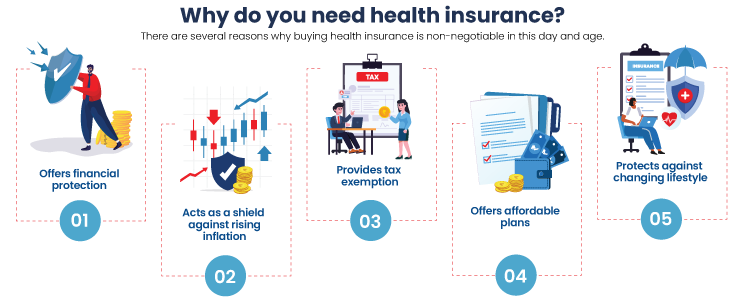What Does a Health Insurance Plan Cover?
A majority of the health insurance plans in India cover the medical expenses given below:
If a patient is hospitalised for more than 24 hours, the insurance plan covers the medical expenses incurred during the treatment of an injury or an illness.
Pre-existing Illnesses or Diseases
Once the waiting period is over, health insurance gives you the option of filing a claim on the expenses undertaken for the treatment of a pre-existing disease or illness.
Expenses before and after hospitalisation
Expenses incurred for medical check-ups, x-rays, and blood tests before hospitalisation, and medicines necessary for smooth recovery are covered under health insurance plans.
Many health insurance plans also cover the expenses incurred for emergency ambulance services. However, the amount covered differs from insurer to insurer.
Expenses associated with pregnancy, delivery and newborn care are also covered by health insurance plans in India.
Preventive Health Check-ups
Most health insurance plans in India also cover regular health check-ups to promote regular health checks and timely detection of illnesses.
Treatments that take less than 24 hours and do not require hospitalisation are also covered by health care policies. These include dialysis, eye surgery, and other daycare surgeries that are mentioned in your health insurance policy.
For patients who have been advised by their medical practitioner to seek home treatments, health insurance also covers expenses incurred on such healthcare.
Many health insurance plans cover the expenses incurred on treatments like Homeopathy, Yoga, Siddha, Unani, or Ayurveda.
A health insurance policy in India covers mental health illnesses under the Mental Healthcare Act of 2017. They cover illnesses like schizophrenia, acute depression, bipolar affective disorder, etc.



























